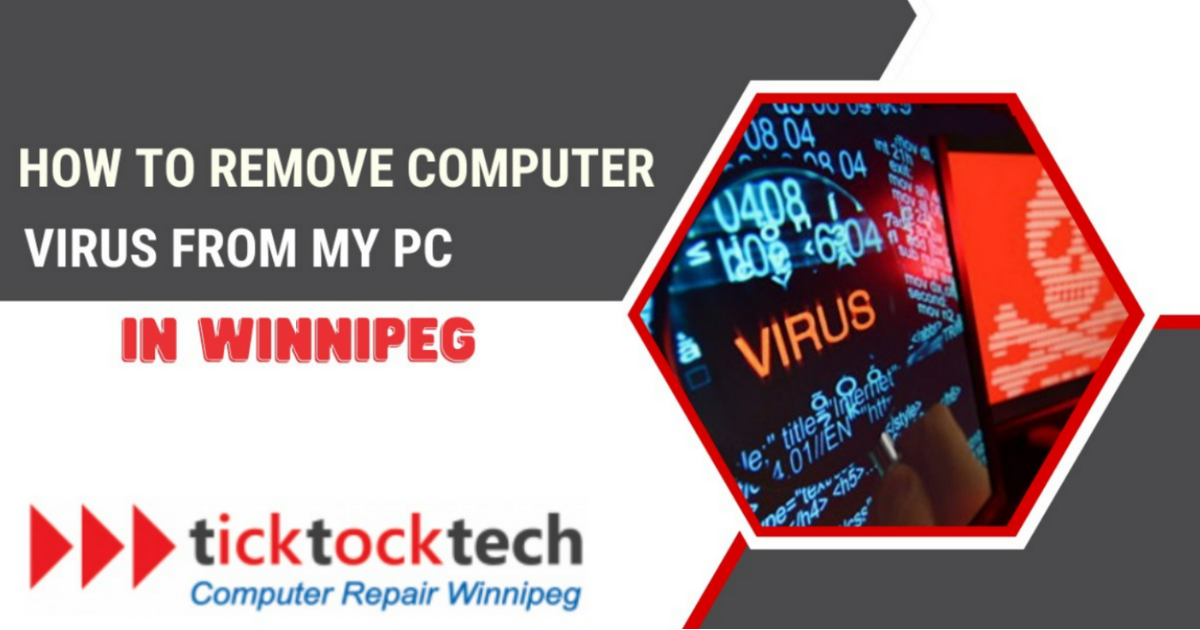If your computer is acting strangely, such as being slow, displaying unexpected pop-ups, or crashing frequently, it may be infected with a computer virus. Viruses are malicious programs that can damage your files, steal your personal information, or even render your computer unusable.
The good news is that there are steps you can take to remove computer viruses and protect your computer from future infections. In this blog post, we’ll walk you through the process of removing a computer virus from your PC and provide some safeguarding tips for preventing future infections.
What is a Computer Virus
A computer virus is a type of malicious software program that, when executed, replicates itself by modifying other computer programs and inserting its code into those programs. It’s important to note that the term “virus” is often used broadly to refer to various types of malicious software, including worms, Trojans, ransomware, and spyware, which have different behaviors and characteristics.
Characteristics of Computer Viruses
Here are some key characteristics and behaviors of computer viruses:
- Replication: Computer viruses can replicate themselves, allowing them to propagate and spread. This replication can occur on the same computer or other computers.
- Infection: Viruses can infect other computer programs by altering their codes and rendering them non-functional. This process allows the virus to hide and execute its code within legitimate programs.
- Harmful Actions: Computer viruses cause many negative impacts on infected computers and their users. This harm includes slowing down system performance, corrupting or deleting files, displaying unwanted pop-up messages, stealing sensitive personal information (such as passwords or credit card details), and even taking control of the infected computer.
- Stealth: Many computer viruses are designed to be stealthy and avoid detection. Computer viruses often hide their presence on infected computers, making it challenging to detect their presence.
How Does a Computer Virus Spread?
Computer viruses spread through different ways. Some of them include:
- Infected Email Attachments: Viruses can be attached to email messages as malicious file attachments.
- Downloaded Infected Files: Infected files can be downloaded from the internet. These files may include seemingly harmless software programs, music files, video files, or documents.
- Visiting Infected Websites: Some websites host infected content or exploit vulnerabilities in web browsers to deliver viruses to visitors’ computers when they access the site.
- Removable Media: USB drives, external hard drives, or other removable storage devices can infect your computer when you connect them, transferring viruses to the system.
How to Remove a Virus and Other Malware from Your Computer
Here’s a step-by-step guide on how to remove viruses from your computer.
1. Scan with an Antivirus
Use reputable antivirus and anti-malware applications to conduct a system scan. If you don’t have antivirus software installed, or if your current software is outdated, download and install a reputable antivirus program. There are many free antivirus programs available, such as Windows Defender, Malwarebytes, and AVG AntiVirus Free.
2. Restore Your System
In cases where malware has caused significant damage to your system, a system restore may be necessary. System Restore allows you to revert your computer to a state before the infection occurs. While this can effectively remove malware, it may also result in the loss of recent data and software installations.
3. Delete Temporary Files
After removing malware, it’s a good practice to delete temporary files and clear your browser’s cache. These files may contain remnants of the malware or infected data that can reinfect your computer.
4. Update Your Operating System and Software
Keeping your operating system and installed software up to date is crucial for maintaining security. Ensure you have installed the latest security patches and updates for your operating system and applications.
5. Change Passwords
As a precautionary measure, change the passwords for all your online accounts. Strong, unique passwords are essential for maintaining online security.
How to Safeguard Against the Spread of a Computer Virus
Safeguarding your computer against the spread of a computer virus is essential to protect your files. Here are effective measures to prevent virus infections and limit their spread:
- Backup Your Data: Establish a regular backup routine to safeguard your important data. Backup your files to an external drive or cloud storage. This practice ensures that even if your computer experiences future malware infections, your data remains safe and can be easily restored.
- Install Reliable Antivirus Software: Install an antivirus to perform regular system scans and automatic updates.
- Update Software and Applications: Besides your operating system, keep all installed software and applications up to date. Many malware attacks exploit vulnerabilities in outdated programs.
- Enable a Firewall: Firewalls help to block unauthorized access and protect against incoming threats. Activate your computer’s built-in firewall or install a third-party firewall application.
- Enable Two-Factor Authentication (2FA): Enable two-factor authentication to add an extra layer of security for a second verification method.
Frequently Asked Questions
To remove a virus, install an antivirus, run a full system scan, and follow the instructions provided.
To find all the viruses on your computer, use an antivirus program for a full system scan, check Task Manager for unusual processes, review browser extensions, and analyze your network activities.
Resetting a PC can remove viruses, especially with a full reset or format. However, always backup important files before resetting.
Conclusion – Removing Computer Virus from my PC in Winnipeg
Proactive measures like maintaining up-to-date security software and exercising caution online will help you prevent malware infections and keep your computer secure. However, if you encounter difficulties or uncertainties during the virus removal process, contact us at TickTockTech for professional assistance. Our experienced technicians will quickly remove all traces of malware from your computer and get your device functional again.

